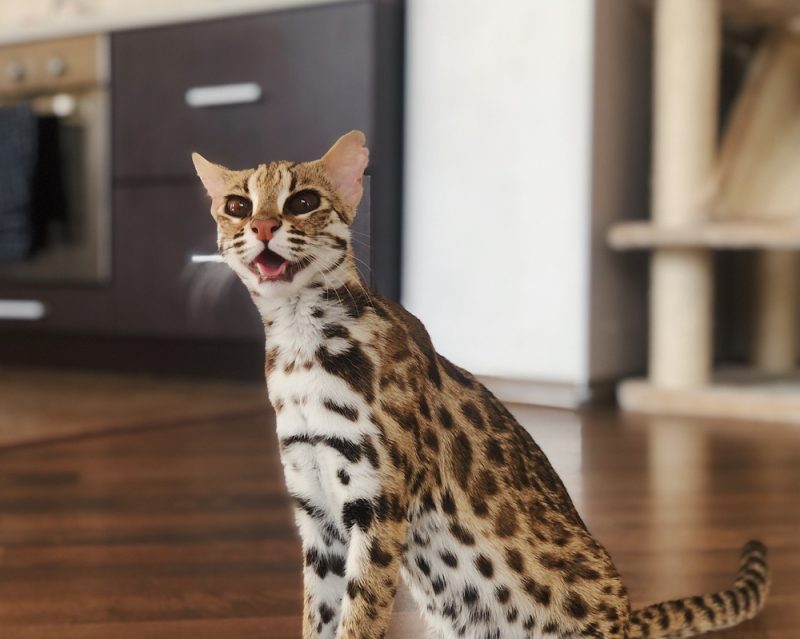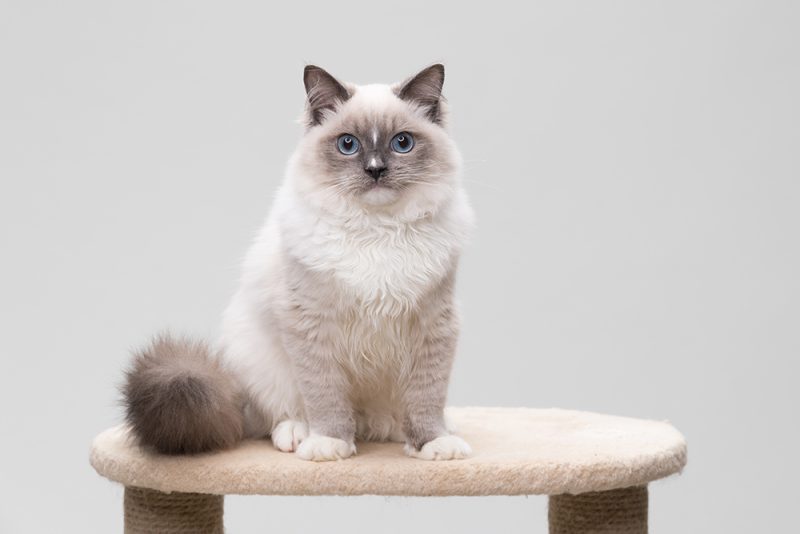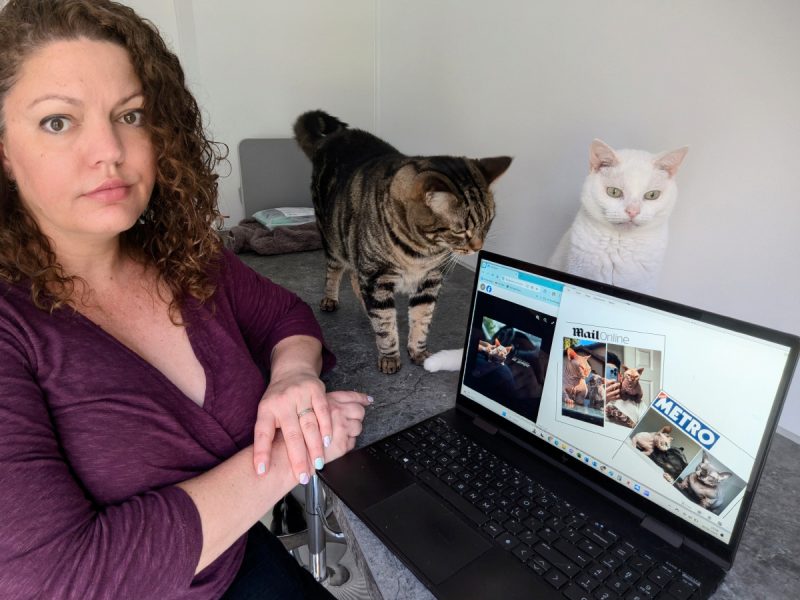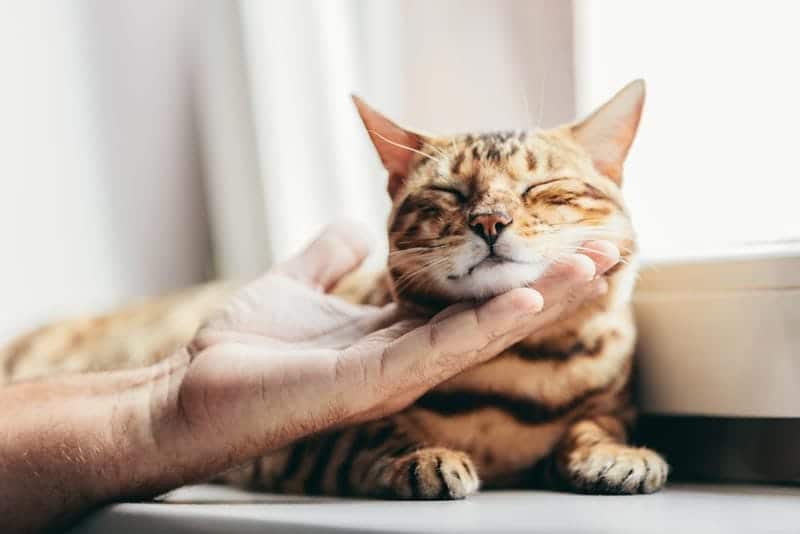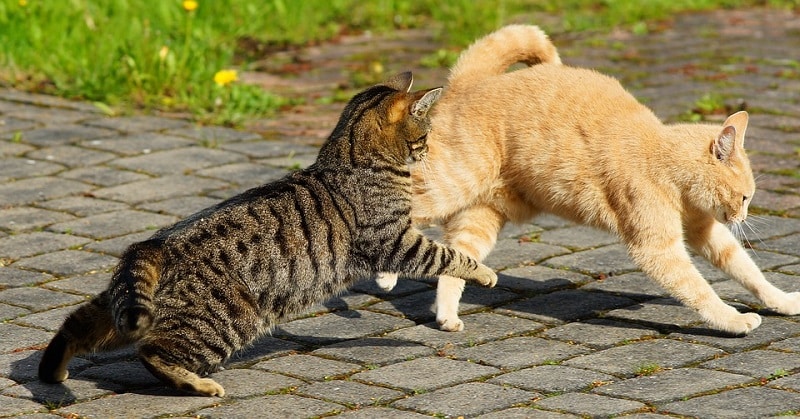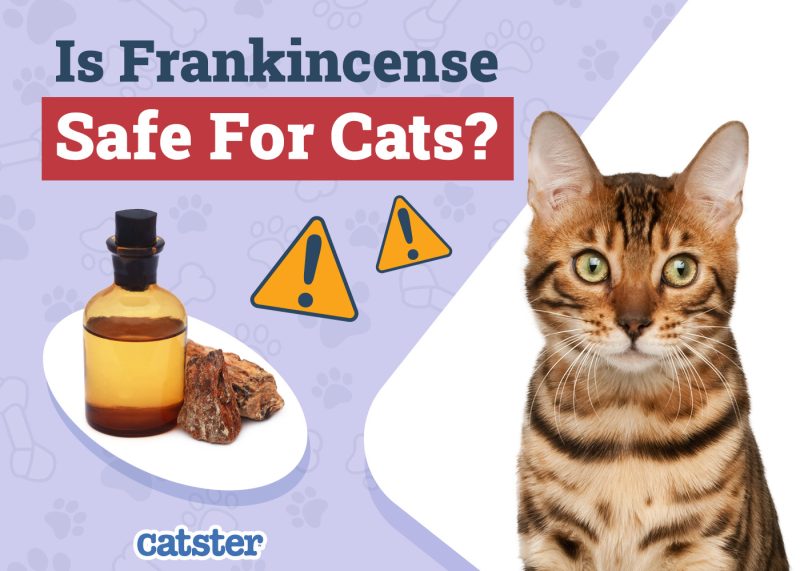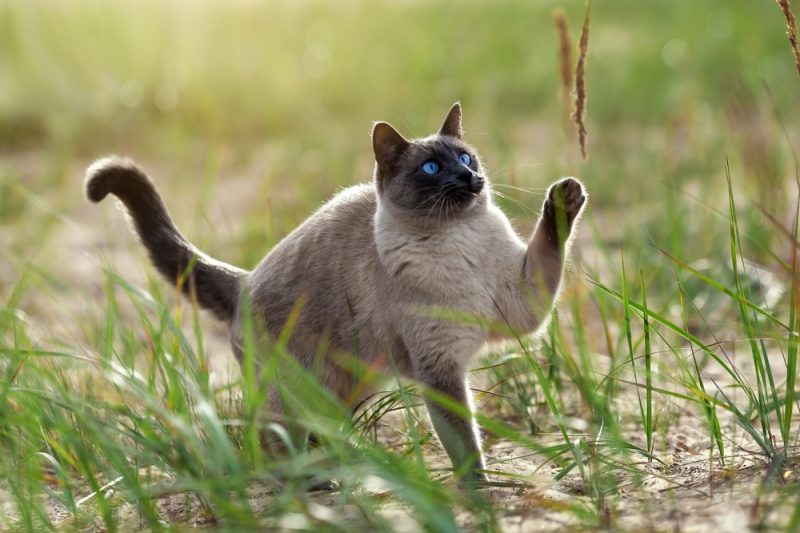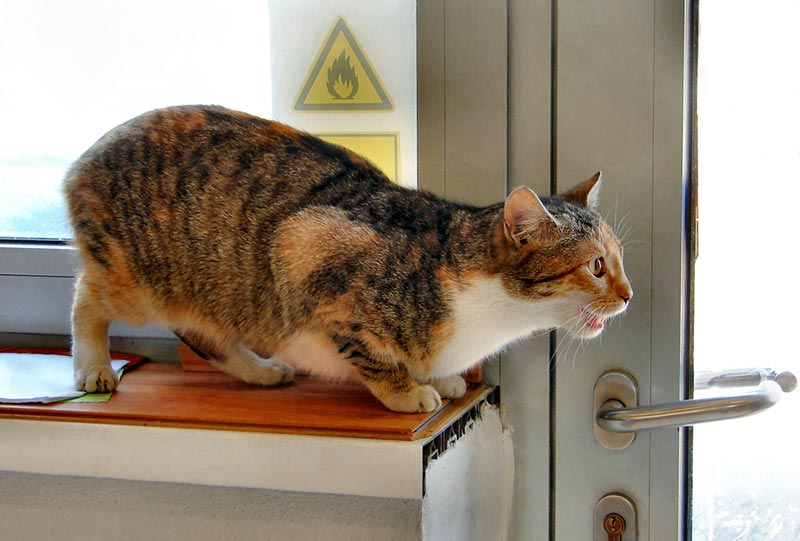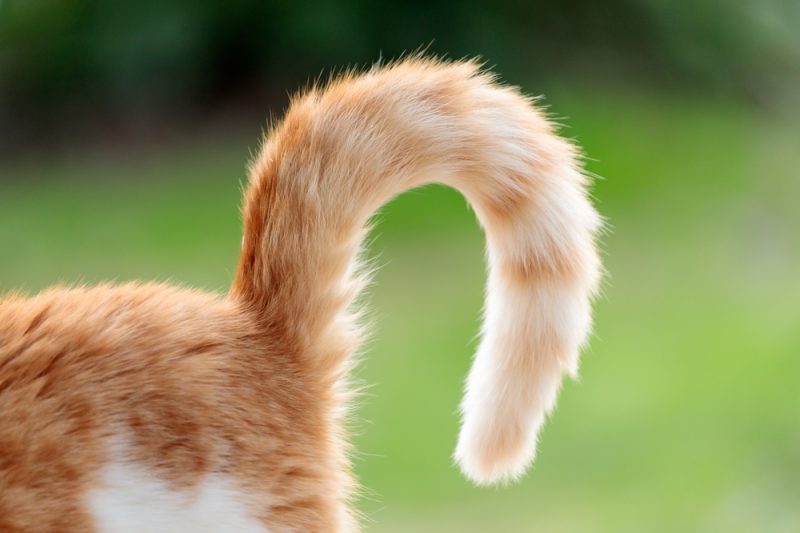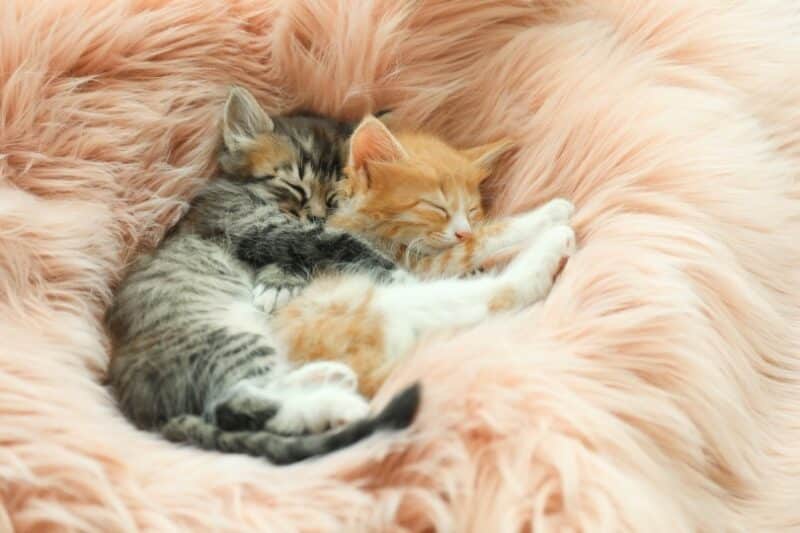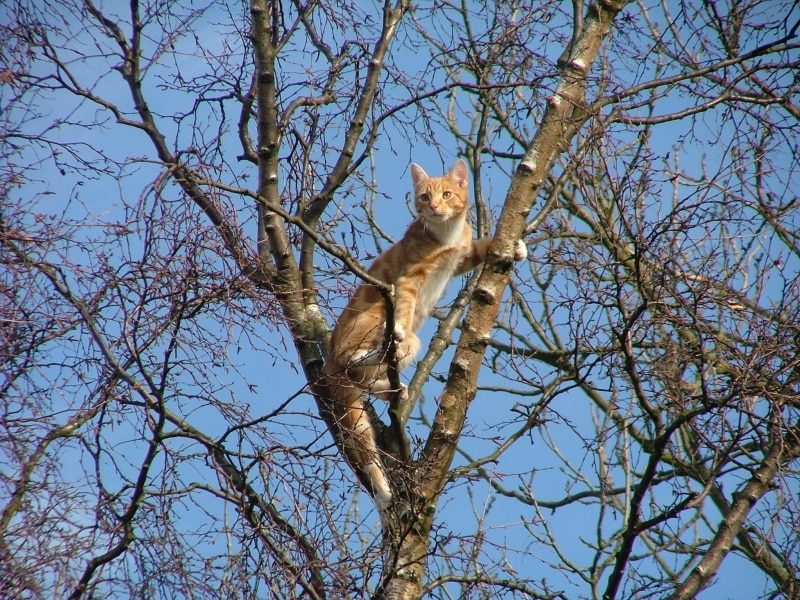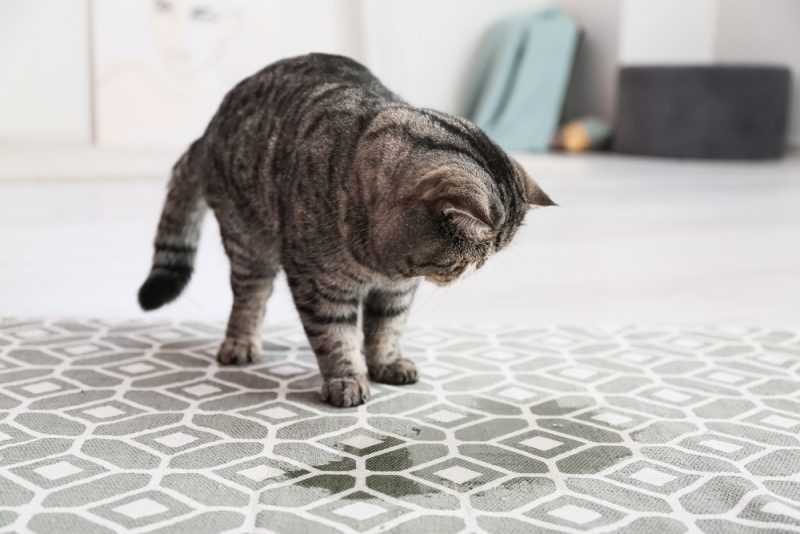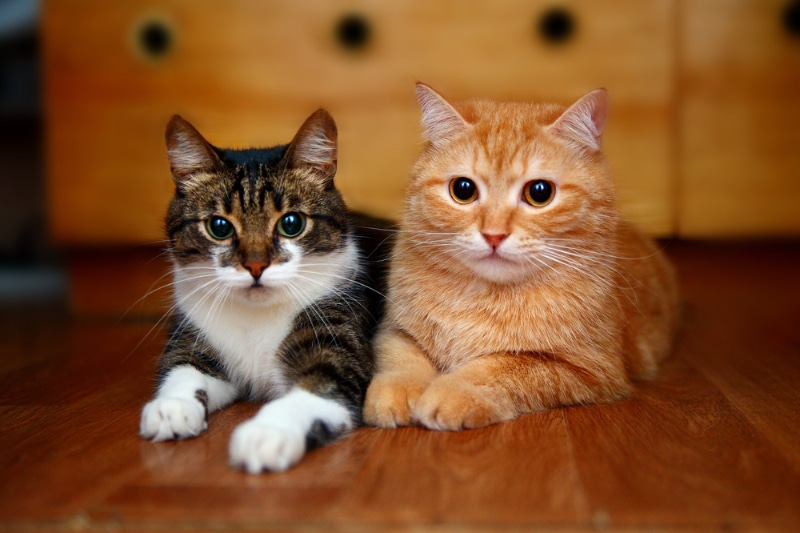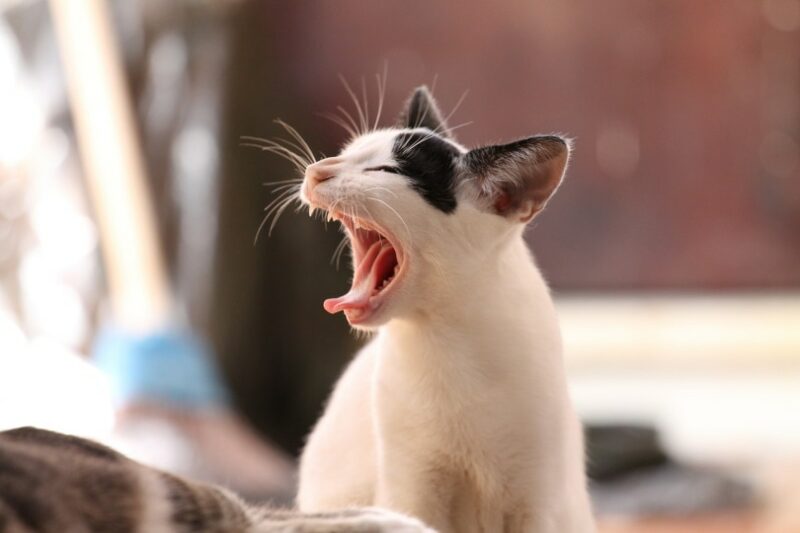The only thing cuter than a cat is a tiny version of a big cat. How awesome would it be to own a little Shetland lion? However, there aren’t many around that fit the bill unless you venture into the world of exotic small cats.
The problem with exotic cat breeds is that while the idea of owning one is certainly attractive, they’re often not legal to keep as pets. There’s a good reason for that, as many exotic breeds are nowhere near domesticated. However, if you have your heart set on one, there are a few exotic breeds that are legal to own. Our list will show you seven of the most popular exotic small cats, but beware, they’re expensive and hard to care for.

The 7 Small Exotic Cat Breeds You Can Keep as Pets
1. Bobcats
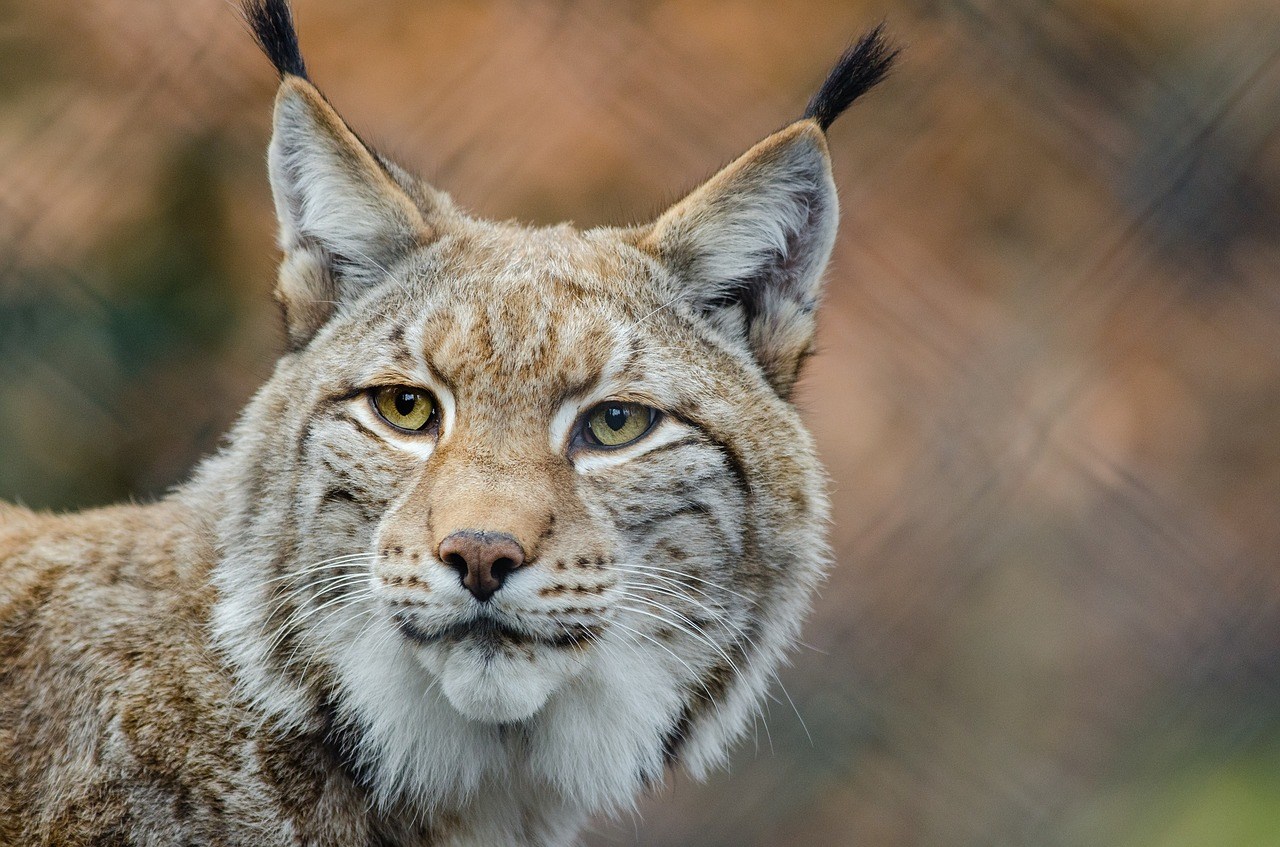
Bobcats are popular because when raised from kittenhood, they bond strongly with their owners, making them behave like giant versions of regular housecats. They’ll also bond with dogs, other cats, and even deer, as long as they’re raised with them.
However, the downside is that Bobcats can kill you if they feel like it. Bobcat-related fatalities are rare, of course, but there will always be the possibility that your cat could go off the rails and do a massive amount of harm to you or a family member.
Bobcat Legal Ownership Status in the US
| Legal: | North Carolina, South Carolina |
| Legal with Permit: | Arizona, Delaware, Florida, Indiana, Maine, Mississippi, Missouri, Montana, North Dakota, Oklahoma, Pennsylvania, Rhode Island, South Dakota, Texas, Wisconsin, Wyoming |
Source: https://worldpopulationreview.com/state-rankings/pet-bobcat-legal-states
2. Servals
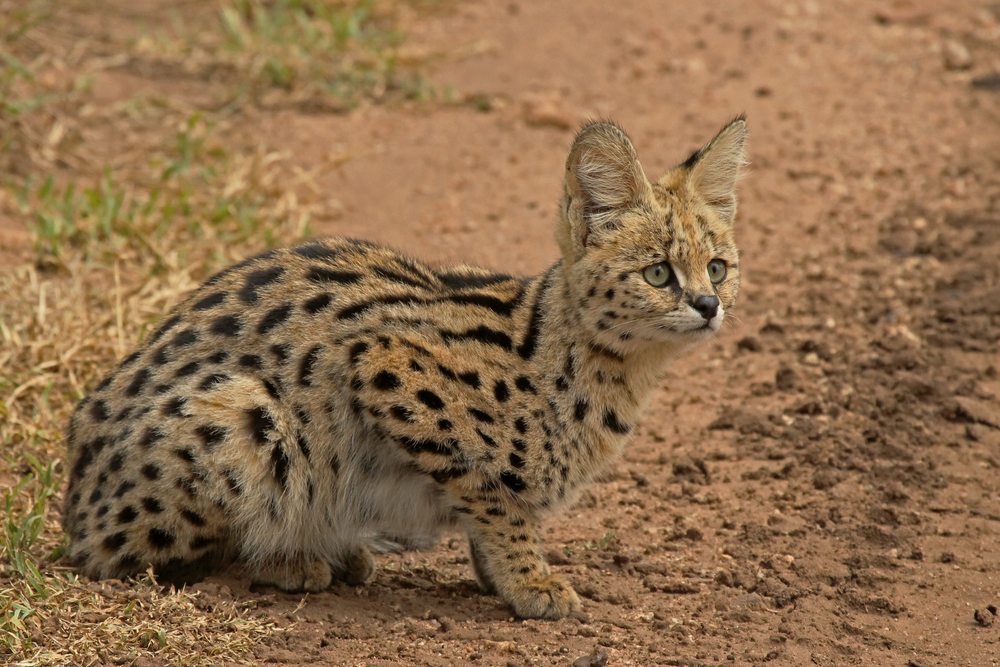
Servals look like miniature Cheetahs. They have long legs and big pointy ears and are covered in black markings, and they will likely cause people to panic if they see them out and about.
While Servals are unlikely to kill you, they can certainly give you a nasty bite or scratch if they feel threatened. You’ll need to be careful not to overfeed them, as they can be prone to obesity when kept as pets.
Serval Legal Ownership Status in the US
| Legal: | Alabama, Illinois, Louisiana, Michigan, Montana, North Carolina, South Carolina, Tennessee, West Virginia, Texas |
| Legal with Ownership Permit: | Arkansas, Florida, Idaho, Indiana, Maine, North Dakota, Oklahoma, Pennsylvania, Wyoming |
| Legal with Import Permit: | Kansas, Kentucky, Mississippi, Missouri, Washington, Wisconsin |
| Legal with Ownership & Import Permits: | Nevada, South Dakota |
Source: https://worldpopulationreview.com/state-rankings/serval-legal-states
3. Canadian Lynx
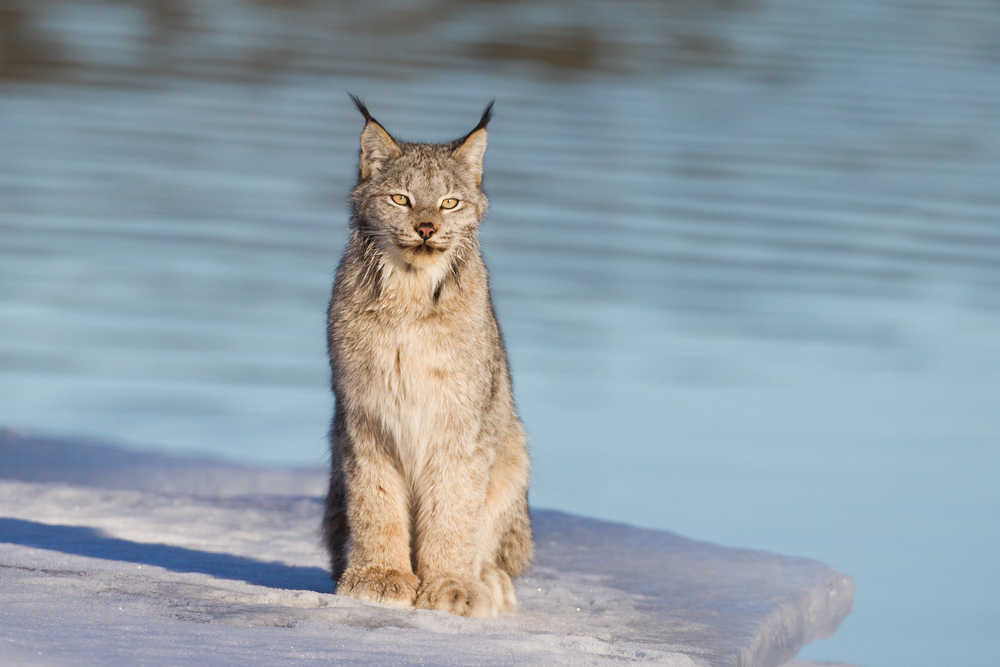
The Canadian Lynx is much like a bobcat, with two key differences: They don’t bond as close to their owners, but they’re not as prone to flights of fury. This wild cat breed wants to be left alone.
They are incredible climbers, so you’ll need several tall cat trees in your home. They’ll spend most of their time lounging around from the highest perch they can find, but don’t worry, you’ll know they’re there, as they shed frequently.
Canadian Lynx Legal Ownership Status in the US
| Legal or No Regulation: | Alabama, Delaware, Nevada, North Carolina, Oklahoma, Wisconsin |
Source: https://bigcatrescue.org/state-laws-exotic-cats/
4. Ocelots
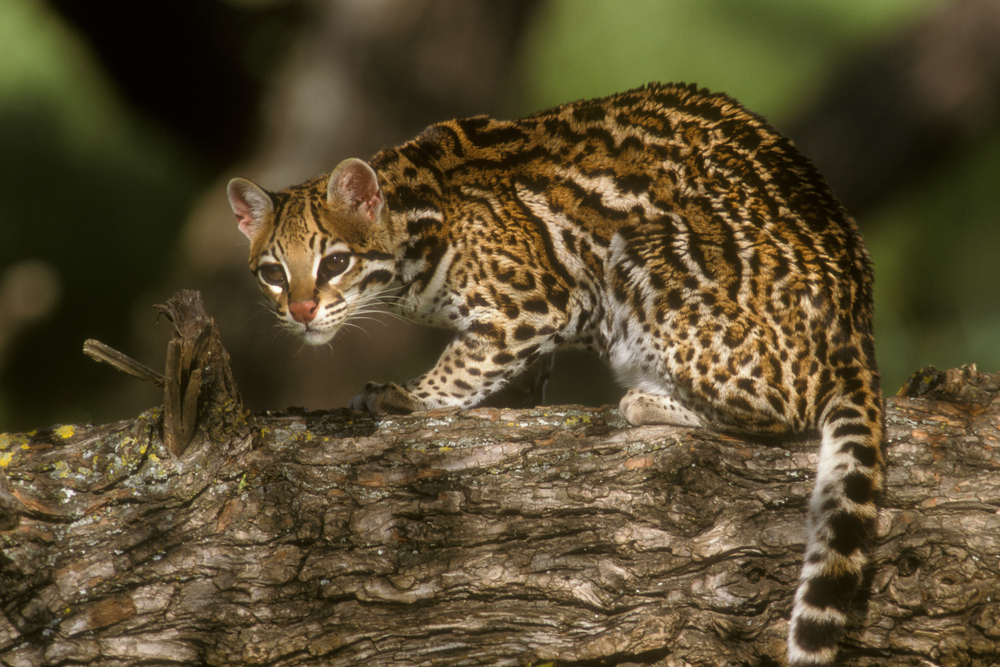
The most famous ocelot was the one that Salvador Dali kept as a pet, named Babou. Dali took his cat with him wherever he went, including restaurants. He was not receptive to any attempts to discriminate against his big cat either.
Dali was most fortunate that Babou never maimed anyone because an Ocelot’s personality is not as cuddly as their appearance. The cats will growl, swipe, and refuse any attempts to rein in their wild behavior, and if that’s not enough, they have a rank odor about them.
Ocelot Legal Ownership Status in the US
| Legal: | South Carolina |
| Legal with Permit: | Arizona, Idaho, Indiana, Maine, Mississippi, Missouri, North Dakota, Pennsylvania, Rhode Island, South Dakota, West Virginia, Texas, Wyoming |
| Unregulated: | Alabama, Delaware, Nevada, North Carolina, Oklahoma, Wisconsin |
Source: https://worldpopulationreview.com/state-rankings/ocelot-legal-states
5. Caracals
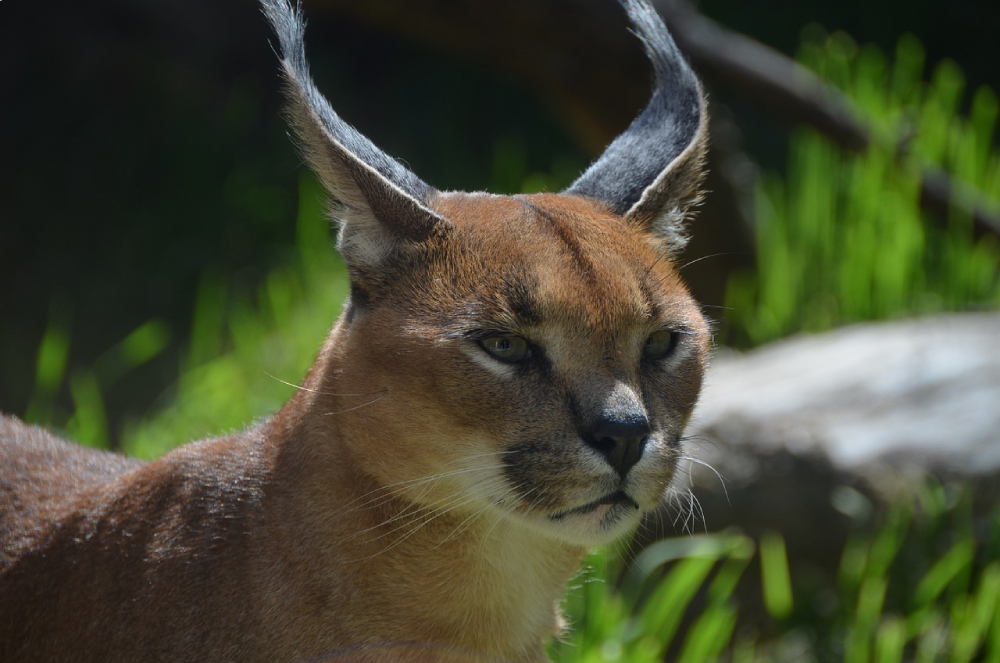
Caracals are big wildcats native to Africa. The biggest males can weigh up to around 40 pounds. They are known for being aggressive even when raised as pets. You will get hissed at a lot if you have a Caracal in your home, which can be extremely creepy.
However, you can offer them play and affection on their terms. You can’t just walk up and pet them (or, God forbid, pick them up) because they’ll quickly put you in your place.
Caracal Legal Ownership Status in the US
| Legal: | Arizona, Arkansas, Delaware, Florida, Indiana, Maine, Mississippi, Missouri, Montana, North Dakota, Oklahoma, Pennsylvania, South Dakota, Tennessee, Texas |
| Legal with Permit: | South Carolina, Idaho |
| Unregulated: | Alabama, Illinois, Michigan, Nevada, North Carolina, Wisconsin |
Source: https://worldpopulationreview.com/state-rankings/pet-caracal-legal-states
6. Jungle Cats
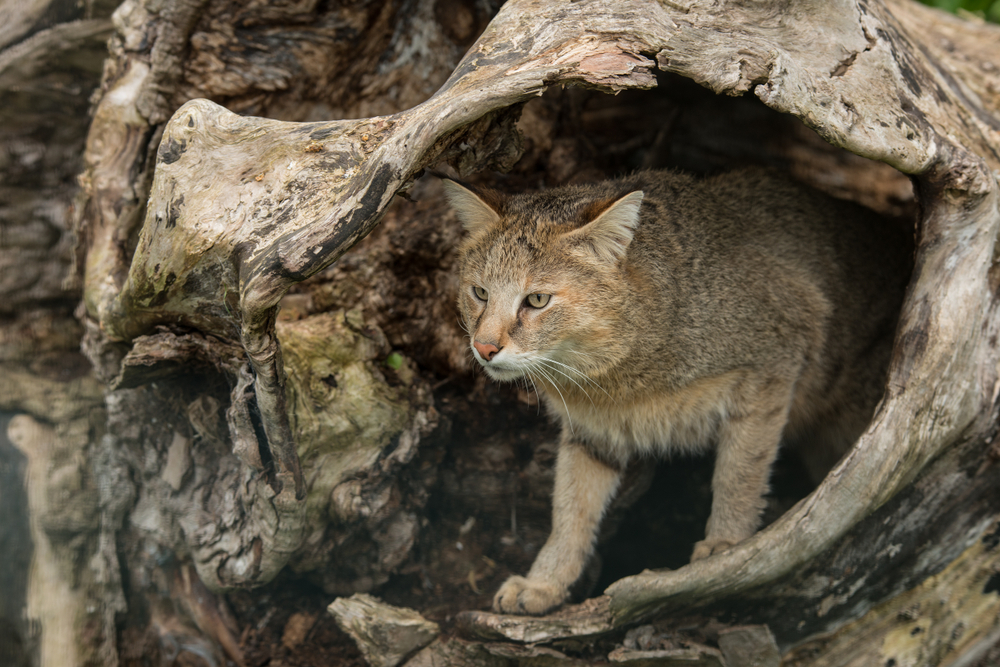
These animals look like overgrown house cats. Native to Asia and Egypt, Jungle Cats are incredibly nervous creatures, even when they’ve been living in the same house for several years. Expect them to run to the nearest hiding place whenever something unexpected happens.
They like to be left alone, and they’re not a good fit for needy cat owners. They do best in enclosed outdoor spaces, so if you can fence in your patio, that might be the best place to keep them.
Jungle Cat Legal Ownership Status in the US
| Unregulated | Alabama, Nevada, North Carolina, Wisconsin, Delaware, and Oklahoma. |
Source: https://bigcatrescue.org/state-laws-exotic-cats/
7. Asian Leopard Cats
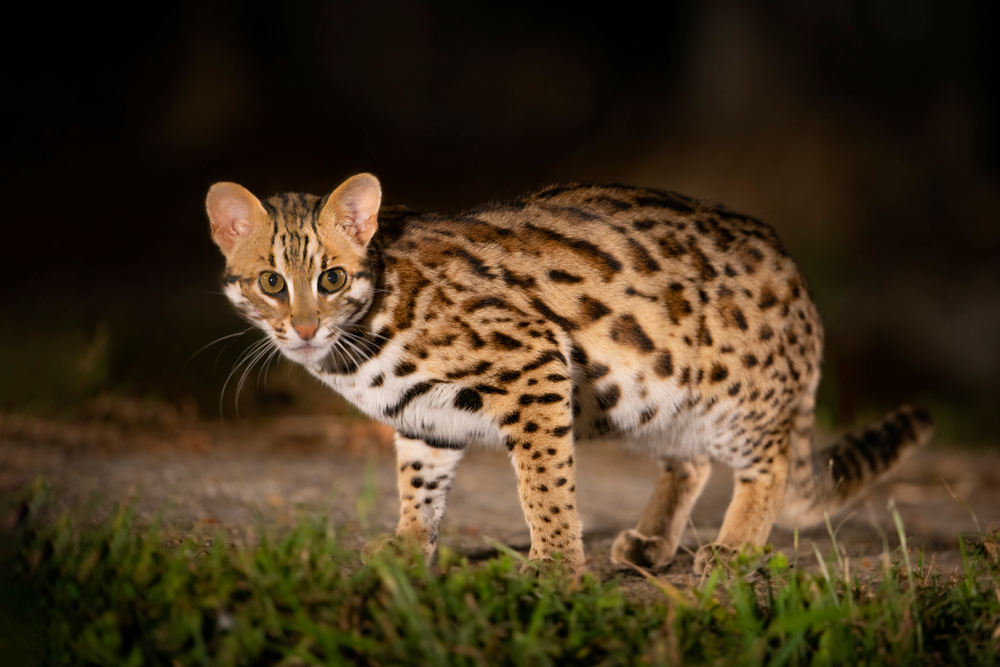
Asian Leopard Cats aren’t actual leopards, although they do a good imitation. These cats are much smaller, roughly the size of the average housecat, and they’re the forebears of the popular Bengal breed.
Asian Leopard Cats can make good pets, but only if they’re properly socialized from a young age. Even under the best circumstances, they’ll need plenty of alone time, so try not to overwhelm them with affection.
Asian Leopard Cat Legal Ownership Status in the US
| Legal with Restrictions or Permits: | Alabama, Delaware, Idaho, Indiana, Mississippi, Nevada, North Carolina, North Dakota, Oklahoma, Texas, Washington |
Source: https://bigcatrescue.org/state-laws-exotic-cats/

Adopting a Regular Cat Is Still Your Best Bet
While these exotic cats are all sure to be conversation starters, most of them make poor pets, and they’d prefer to be left alone in the wild, anyway. You’re almost certainly better off rescuing a regular cat from the local pound than shelling out thousands of dollars to bring home a Jungle Cat. If you decide to adopt an exotic cat, ensure the species is legal to own in your area.
Related reads:
- Exotic Cat Breeds That Are Legal to Keep as Pets in U.S. (With Pictures)
- Different Types of Wild Cats (With Pictures)
- Cat Breeds That Get Stolen Most Often (With Pictures)
Featured Image Credit: Serhii Miranovskyi, Shutterstock

